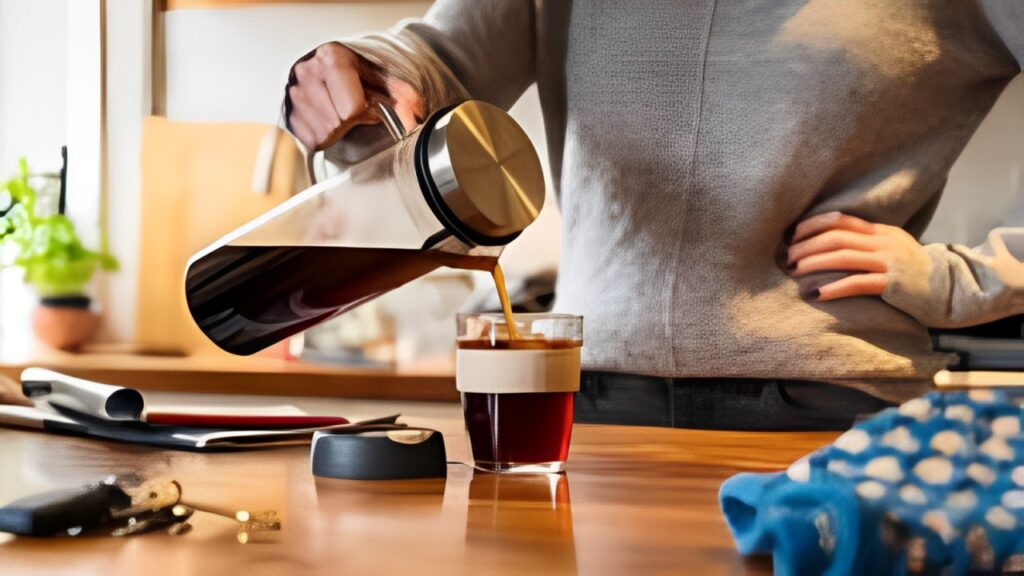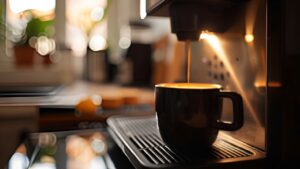You might think all coffee is made with the same hot water, but that's not true! As a barista, I know how important water temperature is for making and serving coffee.
Why does it matter? What temperatures are best for different types of coffee? And when is coffee too hot?
This article covers everything from how water temperature affects flavor to the best temperatures for making and serving coffee.
If you're interested in the science of making great coffee, you should read this guide on the best temperatures for coffee.
In this article we'll cover:
- How Water Temperature Affects Coffee Flavor
- Best Brewing Temperatures for Various Types of Coffee
- Serving Temperature: How Hot is Too Hot?
- Final Thoughts
- Frequently Ask Questions
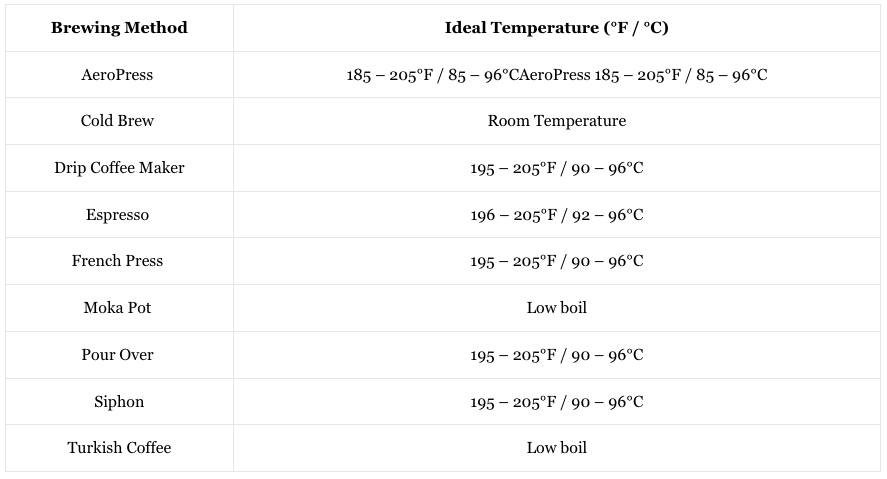
Ideal coffee brewing temperatures
How Water Temperature Affects Coffee Flavor
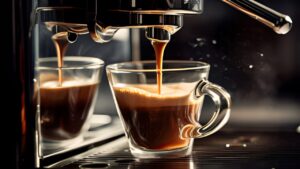
In the coffee brewing process, hot water flows through ground coffee beans, releasing their: oils, acids, flavors, and aromas.
The compounds extracted vary based on the brewing water's temperature.
- At lower temperatures: aromatics and subtle flavors of sweetness and acidity are extracted.
- As higher temperature: heavier body components and bolder notes become prominent.
It's important to remember that if the water is too hot or too cold, it can make your drink taste bad.
- Under-extracted coffee tastes sour.
- Over-extracted coffee tastes bitter.
But there's more to it than simply finding the perfect temperature. Different types of coffee need specific brewing techniques, which are key to creating the best taste.
As a barista with experience in many espresso bars, it's important to experiment with different temperatures to find the best extraction for each blend. It may take time and patience, but it's worth it in the end.
Best Brewing Temperatures for Various Types of Coffee
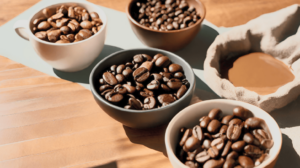
Is there one “best” temperature for brewing coffee? It's not that easy. Let's see what people say and what I suggest in the end.
Boiling Water for Coffee Brewing
Using boiling water for brewing coffee doesn't always result in a tasty cup. It can bring out bitter flavors, especially with delicate light roasts or fragile pour-over methods. Ultra-hot temperatures might burn the coffee, making it taste bad.
Another drawback is that when water is heated to boiling (212 degrees Fahrenheit or 100 degrees Celsius), it loses oxygen. This can lead to a coffee that tastes flat, with muted aromas instead of the bright floral scents you'd expect from freshly brewed coffee.
So, what's the lesson?
If you want to avoid bitterness or burnt flavors and get the best results, it's important to control the heat levels and adjust them based on the type of beans and brewing method you're using.
One Perfect Temperature to Brew Coffee
After lots of research and trying out many brewing methods, the National Coffee Association has figured something out. They recommend using water between 195 and 205°F (90-96°C) for brewing. This range helps get the best flavors from the beans without making the coffee taste bitter from being too hot.
This way is much better than using boiling water, but there's still room for improvement.
Changing Water Temperature According to Brew Type and Beans
When choosing a temperature for brewing coffee, think about the roast level of your beans first.
Different roast levels extract flavors differently.
- For dark roasts, start with cooler temperatures, about 85-90°C.
- For light to medium roasts, use hotter temperatures, around 92-95°C.
The brewing method is important too, as it can change the best temperature range for your beans.
- For a French press, use coarser grounds and temperatures at 205ºF/96ºC.
- Espresso needs finer grounds and temperatures between 197-205°F/92-96°C.
- For pour-over, use medium grounds at temperatures between 205-210ºF/96-98°C.
